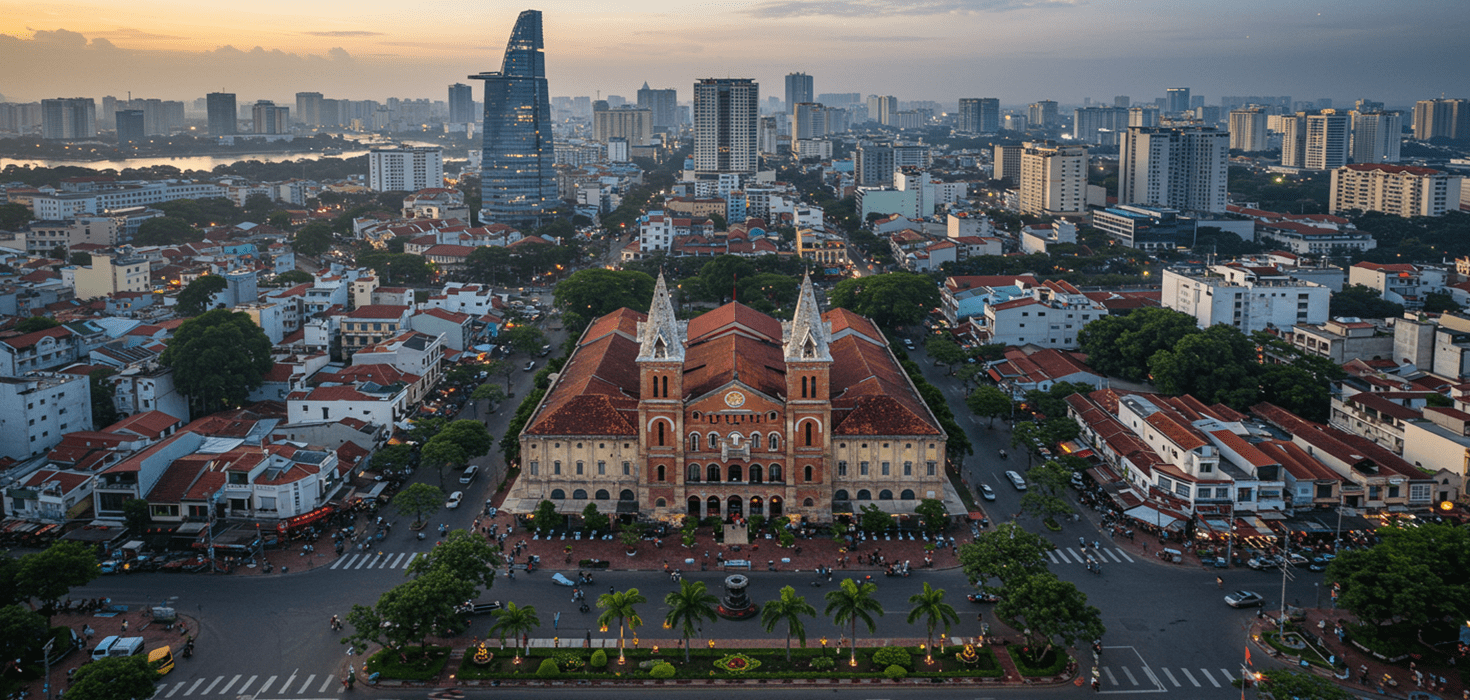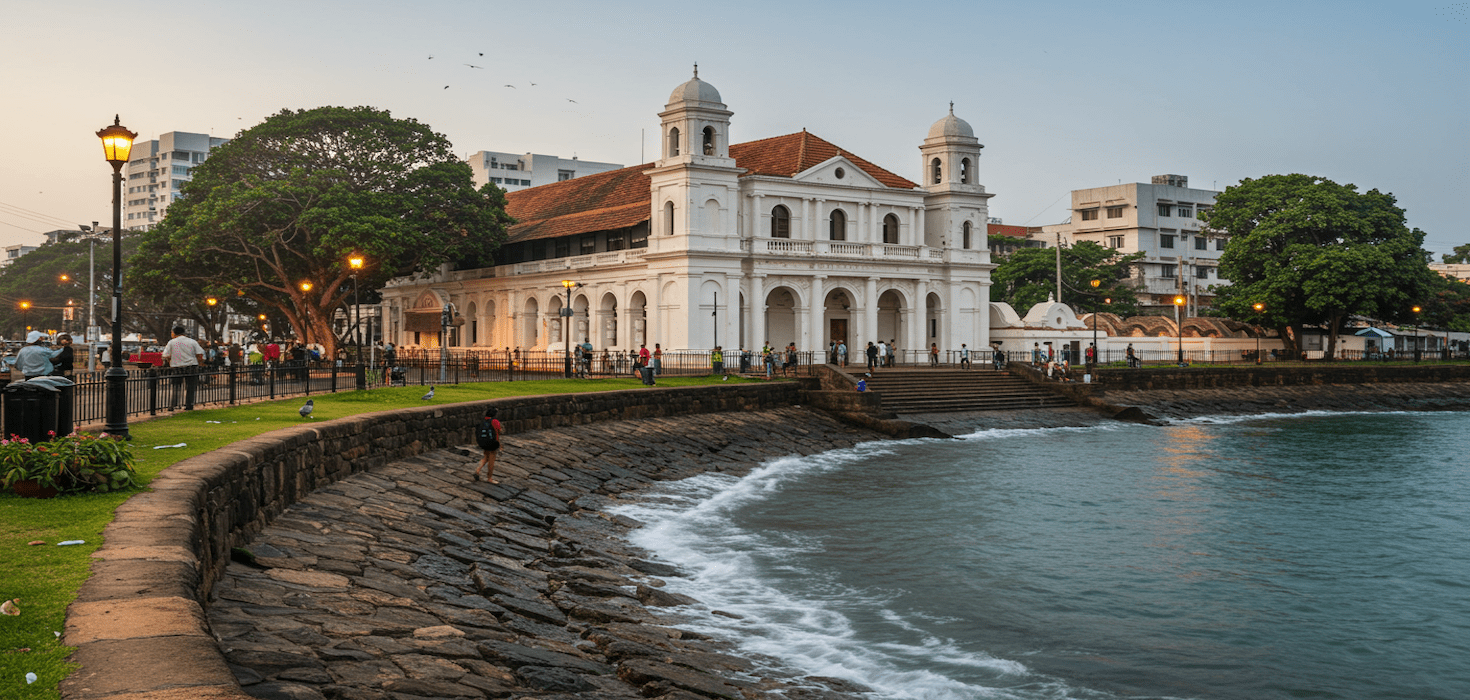Discovering the Language of Goa: A Cultural Journey
Welcome to Goa, a sun-soaked paradise where the beaches are as vibrant as its rich linguistic tapestry! This coastal gem is not just a feast for the eyes but also a delightful playground for language enthusiasts. With a remarkable mix of local languages in Goa, including Konkani, Marathi, Hindi, and English, the region offers a unique opportunity for travelers to connect with its culture on a deeper level. Speaking like a local can open doors to authentic experiences, making your journey all the more enriching.
Goa’s linguistic landscape is a reflection of its diverse history, shaped by centuries of cultural exchanges, colonial influences, and the harmonious coexistence of various communities. The ability to communicate in the local dialects not only enhances your travel experience but also shows respect for the traditions and heritage of this stunning destination. So, whether you’re ordering a plate of spicy vindaloo or joining in a lively conversation at the beach shack, understanding the languages spoken in Goa is key to unlocking the true essence of this coastal haven.
Exploring Goa’s Linguistic Diversity: A Melting Pot of Languages
As you wander through the bustling markets of Panaji or relax on the serene shores of Palolem, you’ll quickly notice the delightful symphony of languages that fill the air. Goa’s linguistic diversity is a testament to its multifaceted culture, with Konkani reigning as the official language. But that’s just the beginning! Marathi, Hindi, and English also play significant roles in daily life, creating a multilingual atmosphere that is both welcoming and fascinating.
Konkani, the heartbeat of Goan culture, is spoken by the majority of the population. This beautiful language comes in various dialects, influenced by the region’s history and the communities that call Goa home. Marathi, the language of the neighboring state of Maharashtra, is also widely spoken, especially in urban areas. Hindi, the national language, is commonly understood, while English serves as a bridge between locals and tourists, making it easier for everyone to connect.
The Portuguese influence on Goa’s languages is another captivating aspect. From the colonial era, many Portuguese words have found their way into Konkani and other local dialects, enriching the vocabulary and giving it a unique flavor. This blend of languages creates a vibrant cultural setting, where every conversation tells a story of Goa’s rich past and diverse present.
Want to get a head start on speaking like a local? Check out our guide on Master Konkani: Speak Like a Local in Goa for essential phrases and tips!
Konkani Language: The Heartbeat of Goan Culture
Diving deeper into Goa’s linguistic landscape, we find the Konkani language at its core. As the official language, Konkani is not just a means of communication; it’s a vital part of Goan identity and culture. With its roots deeply embedded in the region’s history, Konkani boasts several dialects that vary from one area to another, showcasing the rich tapestry of Goan life.
Interestingly, Konkani is written in multiple scripts, including Romi and Devanagari, which adds to its charm and complexity. Each script brings its own flavor, with Romi being more prevalent among the Christian community, while Devanagari is often used by Hindus. This diversity in scripts reflects the rich cultural fabric of Goa and its people.
The cultural significance of Konkani extends beyond mere communication; it is a vessel for traditions, songs, and stories that have been passed down through generations. Festivals, rituals, and local gatherings often feature Konkani, making it an integral part of community life. By learning a few phrases, you can immerse yourself in the local culture and truly appreciate the warmth and hospitality of Goans.
Curious to explore more about Goa’s activities and sights? Don’t miss our Goa Itinerary: Top Activities & Things to See for a perfect blend of culture and adventure!
Essential Konkani Phrases: Speak Like a Local
Ready to impress the locals? Here’s your chance to learn some essential Konkani phrases! Knowing even a few simple expressions can break the ice and create memorable interactions. Here are some must-know phrases that will have you sounding like a true Goan in no time:
- Namaskar (नमस्कार) – Hello
- Dev borem jieu (देव बोरेम जिउ) – God bless you
- Tu kitem asa? (तू कितें आसा?) – How are you?
- Mi borem aasa (मी बोरें आसा) – I am fine
- Dhanyavad (धन्यवाद) – Thank you
These phrases are just the tip of the iceberg! With phonetic spellings and tips on pronunciation, you’ll be ready to greet your neighbors and make new friends. Plus, using local expressions will surely earn you some smiles and appreciation from the Goans.
For more handy phrases and tips, check out our guide on 6-Day Goa Getaway: Sun, Sand, and Serenity!
Cultural Significance of Language: Connecting with Locals
Language is more than just words; it’s the heartbeat of cultural exchange! In Goa, speaking the local lingo can bridge gaps and create friendships that last a lifetime. When you greet someone in Konkani or sprinkle in a Marathi phrase, you’re not just communicating; you’re showing respect and appreciation for the rich heritage of this coastal paradise.
Engaging with locals in their language can transform your travel experience. Picture this: you’re at a bustling local market in Mapusa, haggling over spices and fresh fish. When you confidently say, “Kitem asa?” (How are you?), you’ll see the faces light up, and suddenly, you’re not just a tourist; you’re a part of the community. This kind of interaction can lead to insider tips, recommendations for hidden gems, and even invitations to local gatherings!
Participating in festivals and traditions is another fantastic way to connect. Imagine joining a Goan feast during a local celebration, where the air is filled with laughter, music, and the aroma of delicious food. Knowing a few local phrases can help you join in on the fun, sing along to traditional songs, or even share a toast in Konkani. It’s these moments that make travel unforgettable!
Marathi and Hindi: Understanding Goa’s Linguistic Landscape
While Konkani is the official language of Goa, Marathi and Hindi also play significant roles in the region’s linguistic tapestry. Marathi, with its roots in the neighboring state of Maharashtra, is widely spoken, especially in urban areas and among the local population. You might hear it during conversations in cafes or while shopping at local stores.
Hindi, the national language, is commonly understood and spoken, especially in tourist hotspots. Whether you’re asking for directions or ordering food, knowing a few Hindi phrases can be incredibly helpful. For example, saying “Aap kaise hain?” (How are you?) can create a friendly atmosphere and make locals feel appreciated.
In Goa, these languages coexist harmoniously, creating a multilingual environment that reflects the state’s diverse culture. So, don’t hesitate to sprinkle in some Marathi or Hindi phrases during your conversations. You’ll not only impress the locals but also enrich your travel experience!
The Influence of English in Goa: Bridging Cultures
English serves as a bridge between locals and tourists in Goa, making it easier for everyone to connect. With a significant number of Goans speaking English, you’ll find it a breeze to navigate through the state’s attractions, restaurants, and markets. Many signboards and menus are also available in English, which adds to the convenience.
For travelers, this means you can comfortably explore without the fear of getting lost in translation. However, taking the time to learn a few local phrases can enhance your experience. Imagine sitting at a beach shack, sipping on a chilled feni, and striking up a conversation with the friendly owner in Konkani or Marathi. It’s moments like these that make your trip truly special!
So, while English will certainly help you get by, don’t shy away from trying your hand at Konkani or Marathi. It’s a fun way to engage with the culture and show your appreciation for the local way of life.
Fun Goan Slang: Adding Flavor to Your Conversations
Ready to spice up your conversations? Goan slang is a delightful way to connect with the locals and show off your cultural savvy! Here are some fun expressions to get you started:
- Susegaad – A relaxed, laid-back attitude. Use it to describe the Goan way of life!
- Feni – The famous local spirit made from cashew apples. Perfect for toasting with friends!
- Chor – A playful term for someone who’s a bit of a trickster. Use it with a smile!
Incorporating these terms into your conversations can lead to laughter and camaraderie. Just remember to use them in the right context, and you’ll be well on your way to becoming a beloved member of the Goan community!
Practical Language Tips for Travelers: Navigating Goa with Ease
Now that you’re equipped with some local phrases and slang, let’s talk about practical tips for using them effectively. Here are some scenarios where you can shine:
Ordering Food: When dining at a local restaurant, try using phrases like “Kasa aasa?” (How is it?) to engage with the staff. They’ll appreciate your effort and might even share some insider recommendations!
Shopping: Whether you’re at a flea market or a boutique, using local greetings can make a difference. A simple “Namaskar” (Hello) can go a long way in establishing rapport with vendors.
Asking for Directions: If you find yourself a bit lost, don’t hesitate to ask locals for help. A friendly “Tu kitem asa?” can break the ice and lead to helpful directions.
Engaging with Goan Culture: Phrases to Enhance Your Experience
Ready to immerse yourself in Goan culture? Here are a few phrases that reflect the essence of local life:
- “Susegaad” – A term that embodies the Goan spirit of relaxation and enjoyment.
- “Poddar” – Used affectionately to refer to a younger person or child.
- “Bebdo” – A fun way to refer to a playful or mischievous person.
Using these expressions not only helps you connect with locals but also gives you insight into the Goan way of life. You’ll find that embracing these cultural nuances will lead to richer interactions and unforgettable memories!
Culinary Deep Dive: Food and Language Connection
Food is at the heart of Goan culture, and language plays a significant role in enhancing your culinary adventures. Knowing a few phrases related to dining can elevate your experience at local eateries:
- “Kasa bhaji?” – What’s good today?
- “Mi bhaji kitem?” – What do you recommend?
- “Sukhkar” – Delicious!
When you use these phrases at a local restaurant, you’ll likely receive warm smiles and personalized recommendations. Plus, it’s a fantastic way to learn about the local cuisine and engage with the chefs!
Festivals and Events: Language in Celebration
Goa’s vibrant festivals are a celebration of culture, and language plays a key role in these joyous occasions. Whether it’s Carnival, Shigmo, or Diwali, local expressions fill the air, creating an atmosphere of excitement and unity.
During these celebrations, you might hear phrases like “Maka borem jieu” (May I be blessed) or “Dev borem jieu” (God bless you) as locals come together to share joy and blessings. Participating in these festivities while using local phrases can make you feel like part of the family!
Safety and Health Guidelines: Communicating Effectively
Your safety is paramount during your travels, and knowing how to communicate in emergencies can be a lifesaver. Here are some essential phrases to keep in mind:
- “Mhaka madad kor” – Help me!
- “Kiteak zhana?” – What happened?
- “Mhaka bhorvot” – I need a doctor.
Having these phrases handy can help you communicate your needs effectively, ensuring that you stay safe and enjoy your time in Goa to the fullest!
Commonly Asked Questions (FAQs) about Goa’s Languages
Curious about the languages spoken in Goa? Here are some frequently asked questions to help you navigate the linguistic landscape:
- What languages are spoken in Goa? The primary languages are Konkani, Marathi, Hindi, and English.
- Is it necessary to learn Konkani to visit Goa? While it’s not necessary, knowing a few phrases can enhance your experience and help you connect with locals.
- Can I get by with English? Yes! English is widely spoken in tourist areas, but learning local phrases can be beneficial.
These insights can help you feel more prepared and confident as you explore the linguistic diversity of Goa!
So, whether you’re lounging on the beach, savoring local delicacies, or dancing at a festival, remember that language is your ticket to truly experiencing the magic of Goa. Embrace the local culture, and let the words flow as freely as the waves on the shore!












